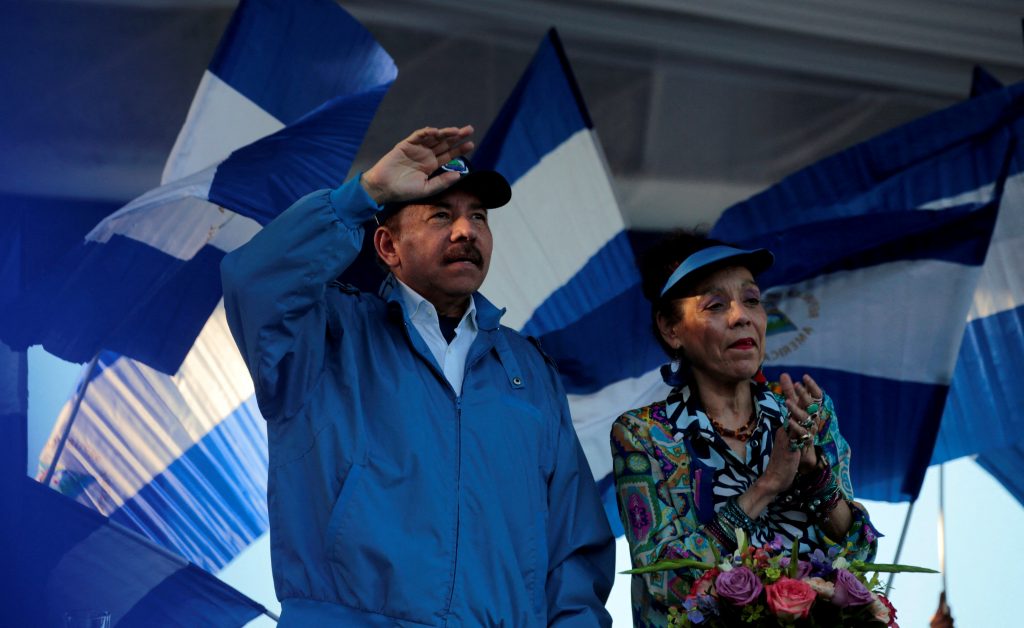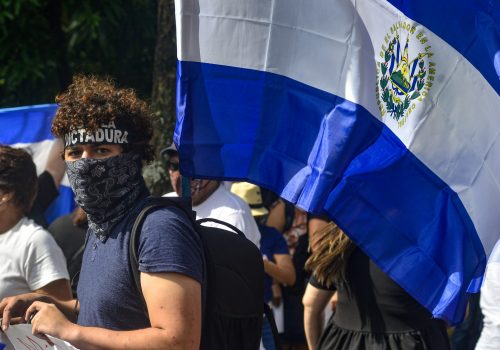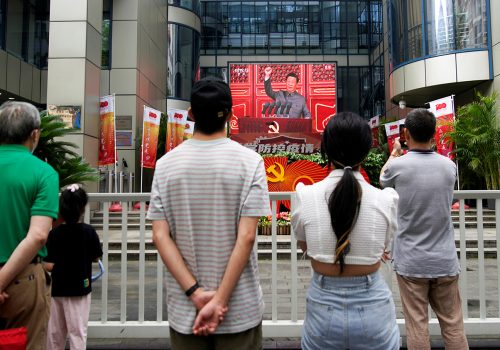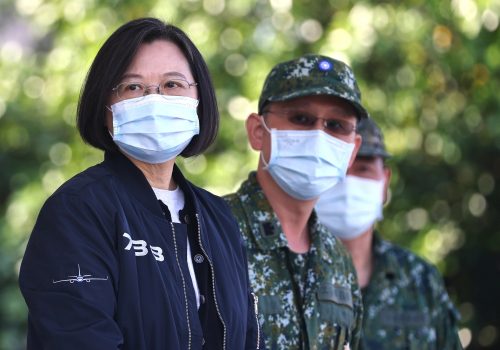Nicaragua’s government dealt a diplomatic blow to Taiwan on Thursday—and handed a win to China—when it decided to no longer recognize Taipei.
It’s not the first nation to have done so: Only fourteen governments recognize the increasingly isolated island state, down from twenty-one just a few years ago. It also probably wasn’t an accident that the move came during US President Joe Biden’s Summit for Democracy—to which Taiwan was invited, but Nicaragua wasn’t.
To learn more about why this wave of diplomatic take-backs matters, as well as what Beijing’s looking to gain from them, we posed the following questions to our experts:
“There is only one China in the world,” Managua said. This seems like a strong endorsement, so what swayed Nicaragua?
Nicaragua’s Daniel Ortega has likely made this decision since he is searching for powerful friends as he faces increasing international isolation. Ortega is trying to use the US-China geopolitical rivalry to his advantage. He wants to make it clear to the United States that he has his own cards to play. And it’s no coincidence that this decision was announced on day one of the Summit for Democracy. For China, it’s an opportunity to further seek to isolate Taiwan internationally. The next question is what has been promised to Ortega for this move.
— Jason Marczak, director of the Atlantic Council’s Adrienne Arsht Latin America Center
Resource constraints, aggravated by the pandemic, catalyzed the China switch—while worsening relations with the United States lowered the cost of doing so.
— Pepe Zhang, an associate director and fellow at the Latin America Center
Nicaragua isn’t the only nation to have switched loyalties in recent years. What’s prompting this trend—and which country (or countries) could be next to do so?
With the election of Tsai Ing-wen, Taiwan’s current president, in 2016 came the end of the tacit “diplomatic truce” between Taiwan and China spearheaded by her predecessor. The People’s Republic of China (PRC) has since poached a number of Taiwan’s diplomatic allies in an effort to restrict its international space and to showcase its displeasure with the current trajectory of cross-Strait relations. There were rumors earlier this year that Paraguay was facing pressure to switch, as its citizens and local governments sought greater access to Chinese-made COVID-19 vaccines. Honduras has also been identified as another country that may switch. Interest in Chinese investment and infrastructure development projects is also a major contributing factor to breaks in relations.
— Jessica Drun, nonresident fellow in the Atlantic Council’s Global China Hub
Most recent switches were primarily driven by pragmatic economic considerations rather than by ideology. This is not to say that geopolitics—such as growing cross-Strait tensions between China and Taiwan—didn’t play a role: Zero regional governments switched recognition under eight years of Tsai’s predecessor, Ma Ying-jeou, versus four switches under five years of Tsai.
— Pepe
Thirteen countries and the Vatican now recognize Taiwan—of which eight are in our hemisphere. All five Caribbean countries that recognize Taiwan have reiterated their support during bilateral engagements and have advocated for Taiwan on the international stage this year. Saint Vincent and the Grenadines, Belize, and St. Kitts and Nevis use diplomatic ties with Taiwan to mobilize domestic support, especially in election years. Also, their small size means that Taiwanese aid and financing is still sufficient and competitive.
— Jason
How damaging is this wave of diplomatic reversals to Taiwan? What about to Washington, given that the United States is a neighbor to Latin America and the Caribbean?
To me, Taiwan’s unofficial relationships are much more critical. However, the break with Nicaragua raises the question of how effectively Washington is implementing the TAIPEI Act, which includes provisions on the United States helping Taiwan maintain its official diplomatic relationships.
— Jessica
China sees the switch as largely symbolic and economically inconsequential for the most part. Seen in this light, the switch is more of a diplomatic—or at least rhetorical—defeat for Taiwan than it is a win for China.
— Pepe
With over half of the countries globally that recognize Taiwan being in our hemisphere, China is increasingly asserting its push to convert regional holdouts. For the United States, it drives home the need to offer alternatives and to find new models of cooperation.
— Jason
One Taiwanease official told Reuters the timing was “provocative” because it came during Biden’s Summit for Democracy. If that’s true, can we expect similarly bold signals from Beijing in the future?
I think so. Since 2016, the PRC has been poaching Taiwan’s diplomatic allies at specific times to send a signal. For instance, we saw the warning shot with the Gambia—which had ties with neither—ahead of Tsai’s inauguration, while El Salvador established relations with the PRC after her high-profile stopover in the United States in 2018.
— Jessica
Dan Peleschuk is New Atlanticist editor at the Atlantic Council.
Further reading
Wed, Dec 8, 2021
Democracy in Latin America is under threat. These two summits are a chance to fix it.
New Atlanticist By
As nations across the Americas come together to address their shared shortcomings, here's a roadmap to help bolster their democratic institutions.
Sun, Oct 17, 2021
We’re at the perilous beginning of an uncertain era in US-China relations
Inflection Points By Frederick Kempe
The United States and China represent the most significant bilateral relationship in human history—and neither side is managing their rising tensions with adequate skill or durable strategy.
Wed, Jun 30, 2021
The case for greater US-EU collaboration on Taiwan
New Atlanticist By
The United States and the EU emphasize different means, but they still have compelling joint interests that cry out for greater coordination—from the economy to shared security.
Image: Nicaraguan President Daniel Ortega and Vice President Rosario Murillo gesture during a march called "We walk for peace and life. Justice" in Managua, Nicaragua, on September 5, 2018. Photo by Oswaldo Rivas/Reuters.



